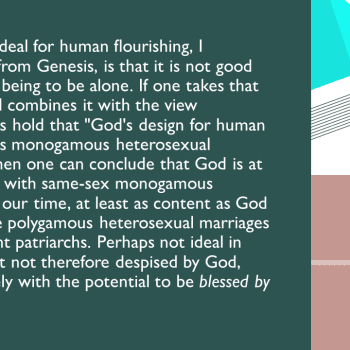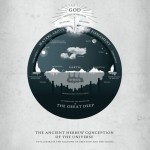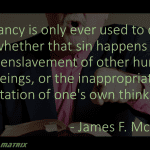An effort to be consistently literal in one’s interpretation of the Bible leads to absurdities. Even the people who are usually labeled “literalists” agree about this. Few of them think that trees will literally clap their hands, for instance. And so it would be ideal if the notion that some people “take the Bible literally” could simply be abandoned as not reflecting the stance of any actual people. Even people who claim to be “literalists,” as few as they are, do not do so consistently – and that includes treating as figurative things that ancient people assumed to be literal, such as the dome over the Earth and the sun rising and setting.
And even among those who are further along the spectrum in the direction of literalism, there are differences. One example is the flat Earth movement, which is mocked for its degree of literalism by young-earth creationists, an irony that is worth highlighting. Although it is hard to believe, as Scientific American recently highlighted, there are indeed actual flat-earthers in our time.
I am also about three years overdue to blog about some things that Keith Reich highlighted and asked about on his blog. In response to blog posts of mine about ancient Israelite cosmology, Keith wrote:
My question remains though: did the biblical writers develop at all in their sense of God and heaven, and was there any movement along the spectrum toward a figurative usage of heaven as the abode of God yet without 100% overlap with a literal meaning of sky? I think there may have been such movement, but perhaps, that is just my modern worldview talking and I am importing that view into the ancient writers’ conceptions. What do you think?
Please do answer his question, even after all this time. It’s a good one. Keith also followed up with another great question about biblical cosmologies, and what to do if the viewpoint of Plato is adopted in a particular work (in this case, the Epistle to the Hebrews) in a manner that it is not in other parts of the Bible. He asks:
So there it is. Plato makes his appearance in the Bible in full force in the book of Hebrews. The dualistic Platonic worldview comes through clearly in Hebrews as Jesus and Christianity represents the fullness of heavenly reality while historical Judaism with its sanctuary/temple, its priests, its sacrifices, and its law, are only copies or shadows.
This discussion raises many fascinating questions. If most of the Bible has one worldview (i.e., non-Platonic, non-dualistic), and one book holds another worldview (Platonic, dualistic), can these worldviews be reconciled? Should they be reconciled? Is one view closer to the truth than the other? But these are questions for another day. What do you think?
And then on another matter of degrees of liberalism, Doug Wilson warned the Presbyterian Church of America that if they couldn’t accept slavery as a positive thing, since it is affirmed in the Bible, then they are basically liberals and have begun the slide towards full acceptance of LGBTQ individuals. We can only hope so. But it is truly useful when individuals like Wilson unmask today’s conservatives as individuals who interpret the Bible just the same way as defenders of slavery and flat-earthers, but selectively. They are liberals about precisely those issues that their forebears insisted must not be compromised lest the slide down the slippery slope begin.
I’ve shared my own thoughts about slippery slopes in the past, and so won’t repeat them here.
Of related interest:
https://friendlyatheist.patheos.com/2018/11/20/biblical-literalists-are-among-the-most-vocal-flat-earthers/
https://friendlyatheist.patheos.com/2018/11/29/greek-orthodox-priest-claims-earth-is-the-only-planet-in-the-universe/
https://friendlyatheist.patheos.com/2018/11/28/stephen-colbert-told-neil-degrasse-tyson-why-faith-and-science-are-compatible/













